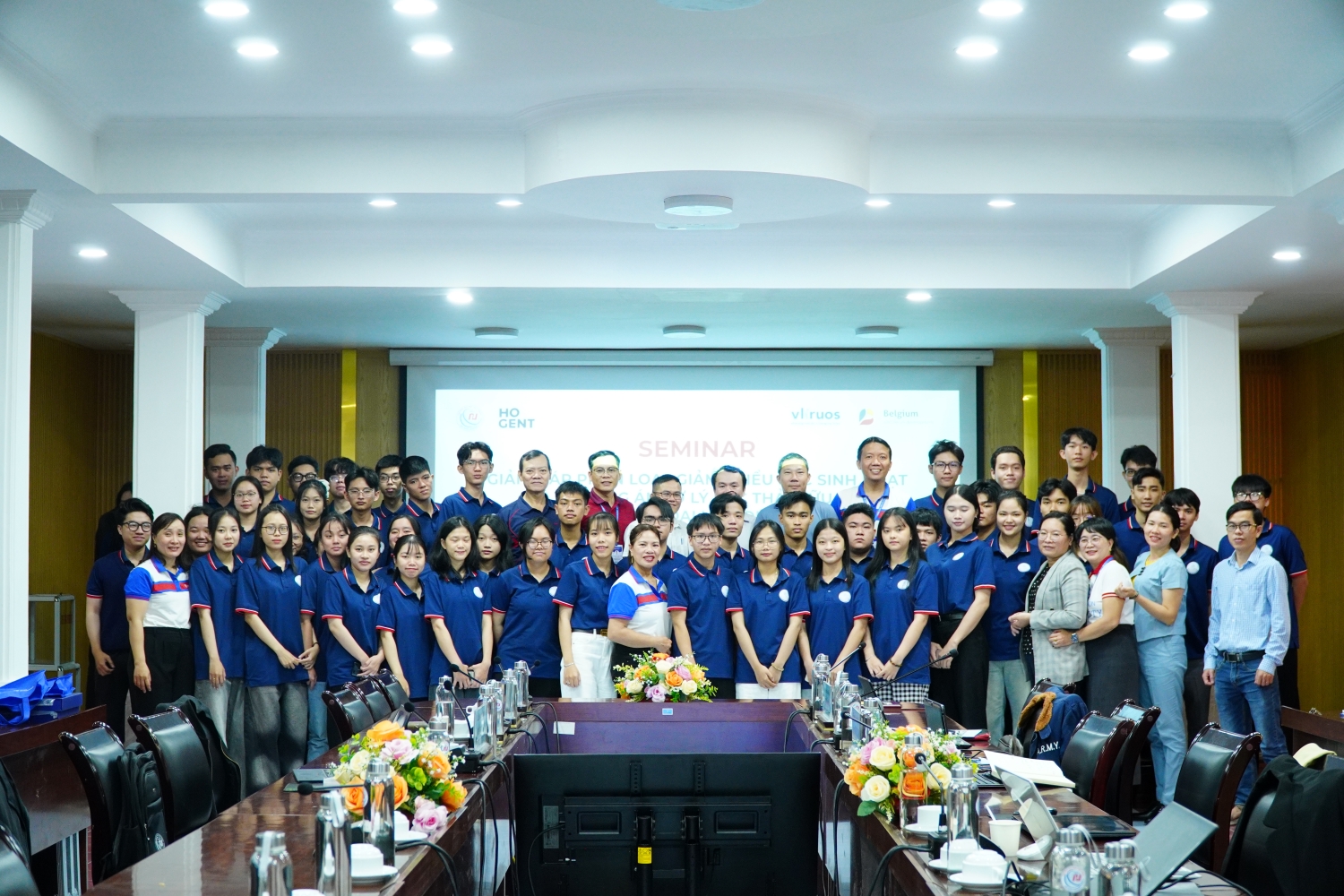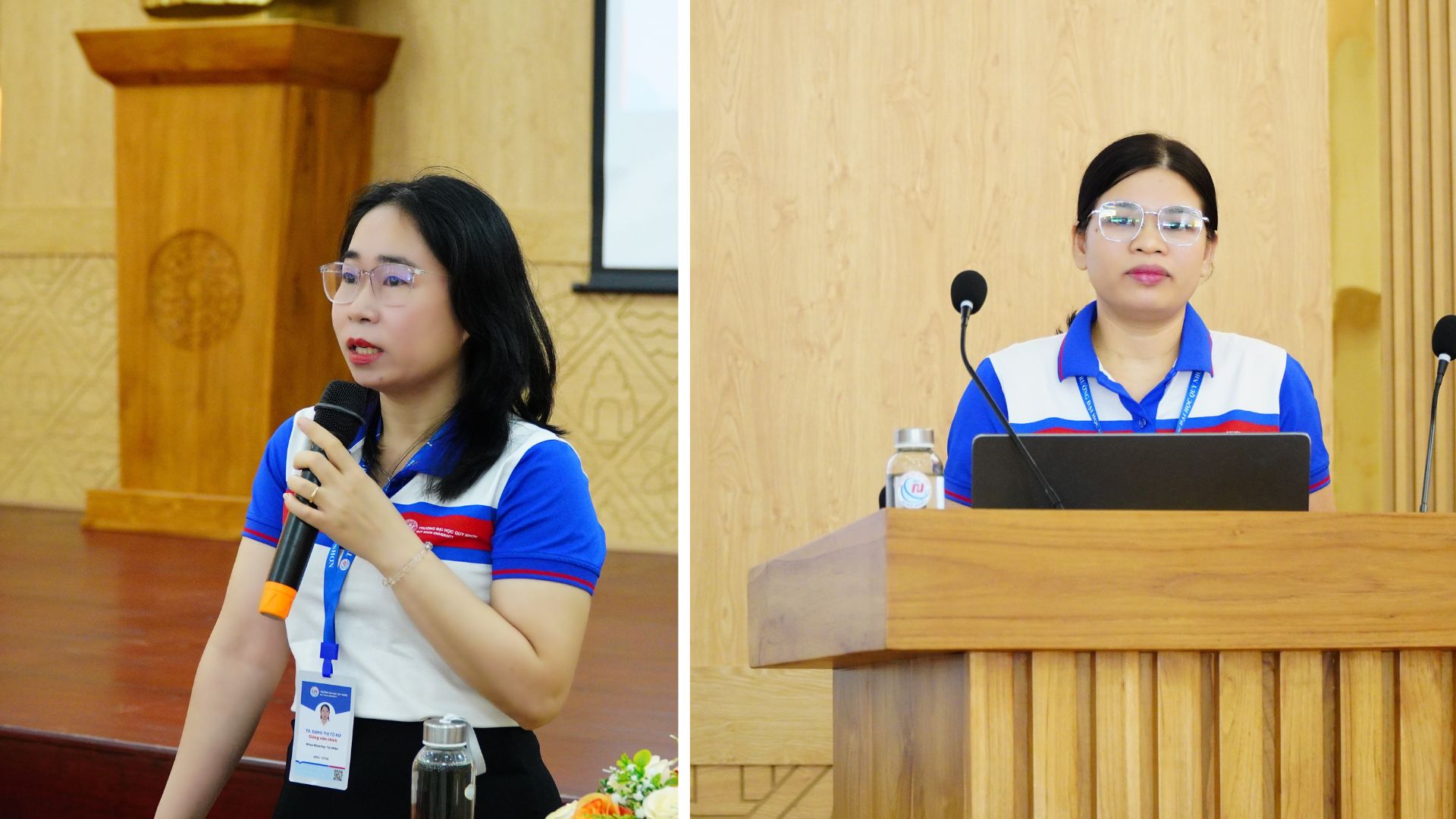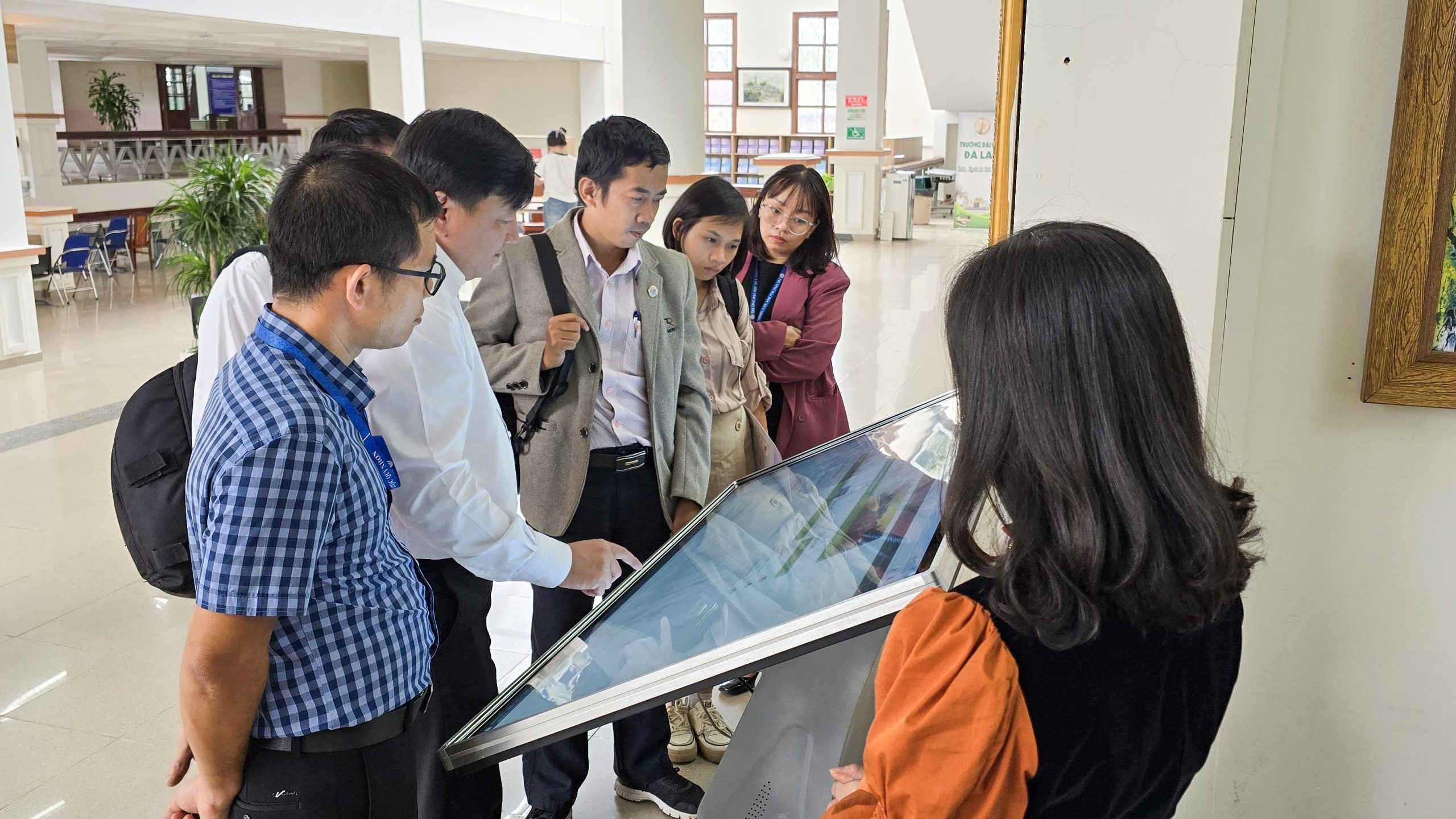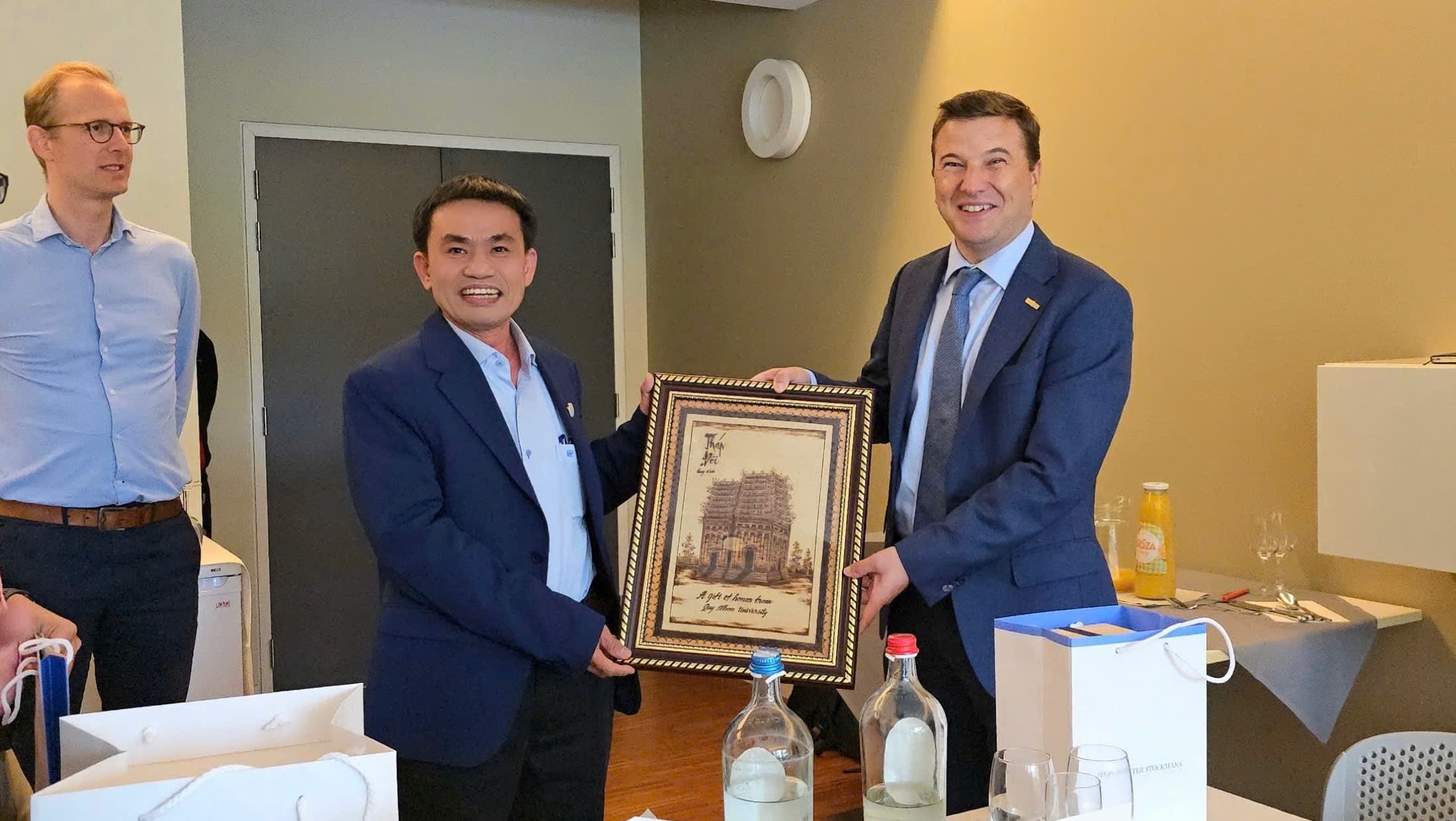Exchange and cooperation in research and production of battery-free IoT devices for early flood warning under sub-project 1 of the IUC-QNU Project
To implement the working plan for the first year of sub-project 1 (IUC-QNU Phase 1), the QNU delegation, including Dr. Ngo Anh Tu and Dr. Huynh Nguyen Bao Phuong, visited KU Leuven in Leuven, Belgium from September 24th to October 8th, 2023. The delegation paid a visit to the Department of Civil Engineering at KU Leuven and collaborated with Professor Patrick Willems, who is the Flemish Team Leader of sub-project 1. During the meeting, both sides discussed the project implementation process and its outcomes. In general, sub-project 1 completed on time according to the first-year plan.

The delegation visits Department of Civil Engineering and discusses with Prof. Patrick Willems –Flemish Team Leader of Sub-project 1

Dr. Ngo Anh Tu reports on the overview of sub-project 1, the results achieved in the first year, and the second-year implementation plan

Dr. Huynh Nguyen Bao Phuong reports on the current status of deploying water level monitoring stations using IoT technology on the Kon River, Binh Dinh and some personal research directions
Furthermore, the delegation visited and collaborated with the Department of Computer Sciences at KU Leuven. During this meeting, Dr. Ngo Anh Tu presented an overview of SP1, the second-year implementation plan, and discussed potential collaboration with the Distrinet Lab of the Department of Computer Sciences. They also discussed the deployment of water level monitoring stations using IoT technology on the Kon River in Binh Dinh, as presented by Dr. Huynh Nguyen Bao Phuong. Additionally, Dr. Phuong presented his own research topics, which were related to Lab Distrinet’s research on wireless energy harvesting and transmission. These topics will contribute to SP1’s future research on IoT-based device design for flood monitoring.
At present, sub-project 1 includes PhD student Bui Van Vu, a lecturer at Department of Engineering and Technology, QNU, who is conducting research at DistriNet Lab, Department of Computer Sciences. His research focuses on “Sustainable Real-Time Flood Monitoring Using IoT” under the guidance of Prof. Danny Hughes and Dr. Huynh Nguyen Bao Phuong. Notably, Mr. Bui Van Vu has successfully designed a battery-free energy harvesting device for the IoT system. The findings mentioned above have been accepted for presentation at the EAI MobiQuitous 2023 Conference in Australia, scheduled this December.
During the visit, the delegation also had the opportunity to take a field trip to the Sigma Plan flood control model in Antwerp, Belgium. The Sigma Plan flood control model aims to provide enhanced protection for Flanders against river flooding and its tributaries while preserving valuable natural resources. The model has already demonstrated its effectiveness in recent years during several storm surges that occurred between 2013 and 2018. It successfully contained excess water and prevented dangerous flooding. Notably, during the event on January 3rd, 2018, a strong storm tide resulted in very high water levels in the Scheldt and its tributaries. Fifteen Flood Control Areas, out of the total sixteen already completed, became operational, effectively buffering the excess water.


Visit Sigma Plan – A protection for Flanders against the flooding of the river Scheldt and its tributaries
SP1 delegation’s short-term visit to KU Leuven was a resounding success. The results obtained will be highly beneficial for the project’s implementation in the second year. Furthermore, this visit has paved the way for potential collaborations between DistriNet Lab, the Department of Computer Sciences, and Quy Nhon University in conducting short-term IoT training courses for students in Telecommunication at Quy Nhon University.










